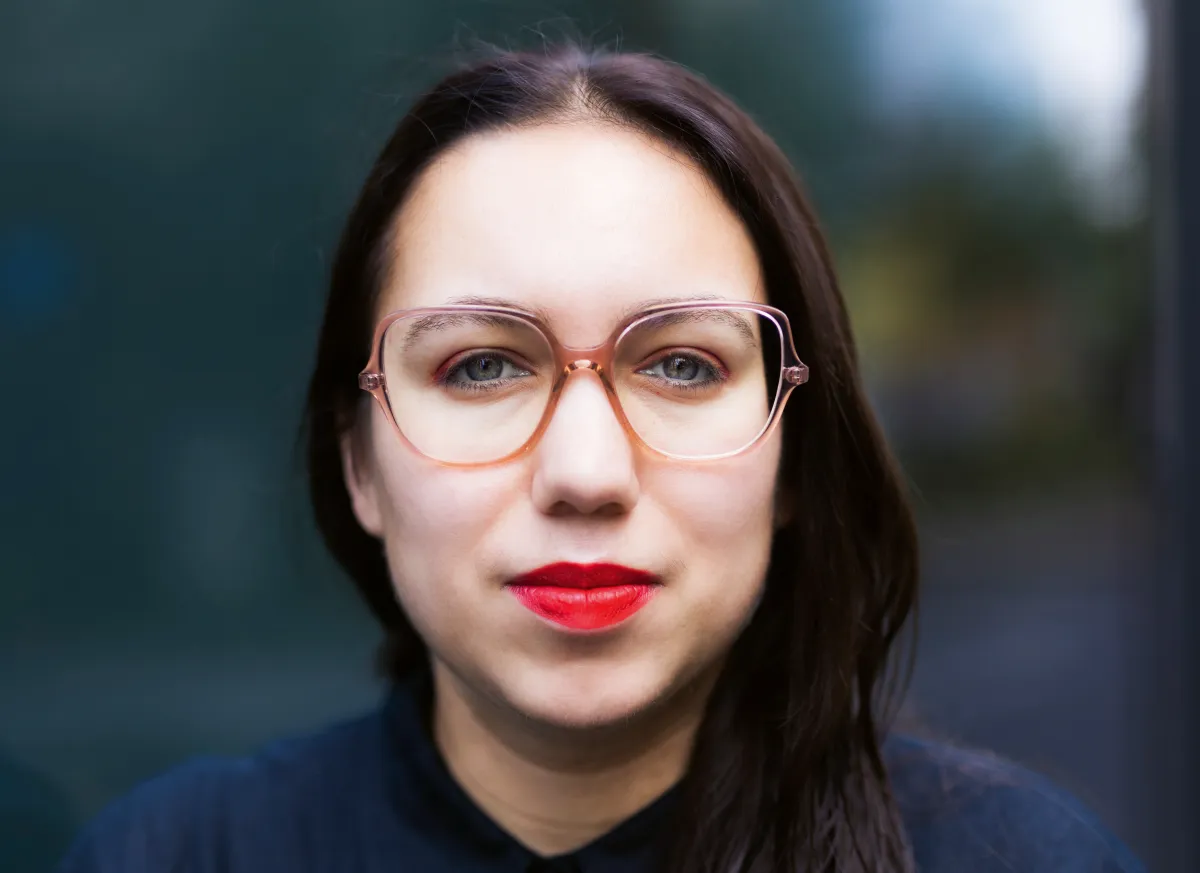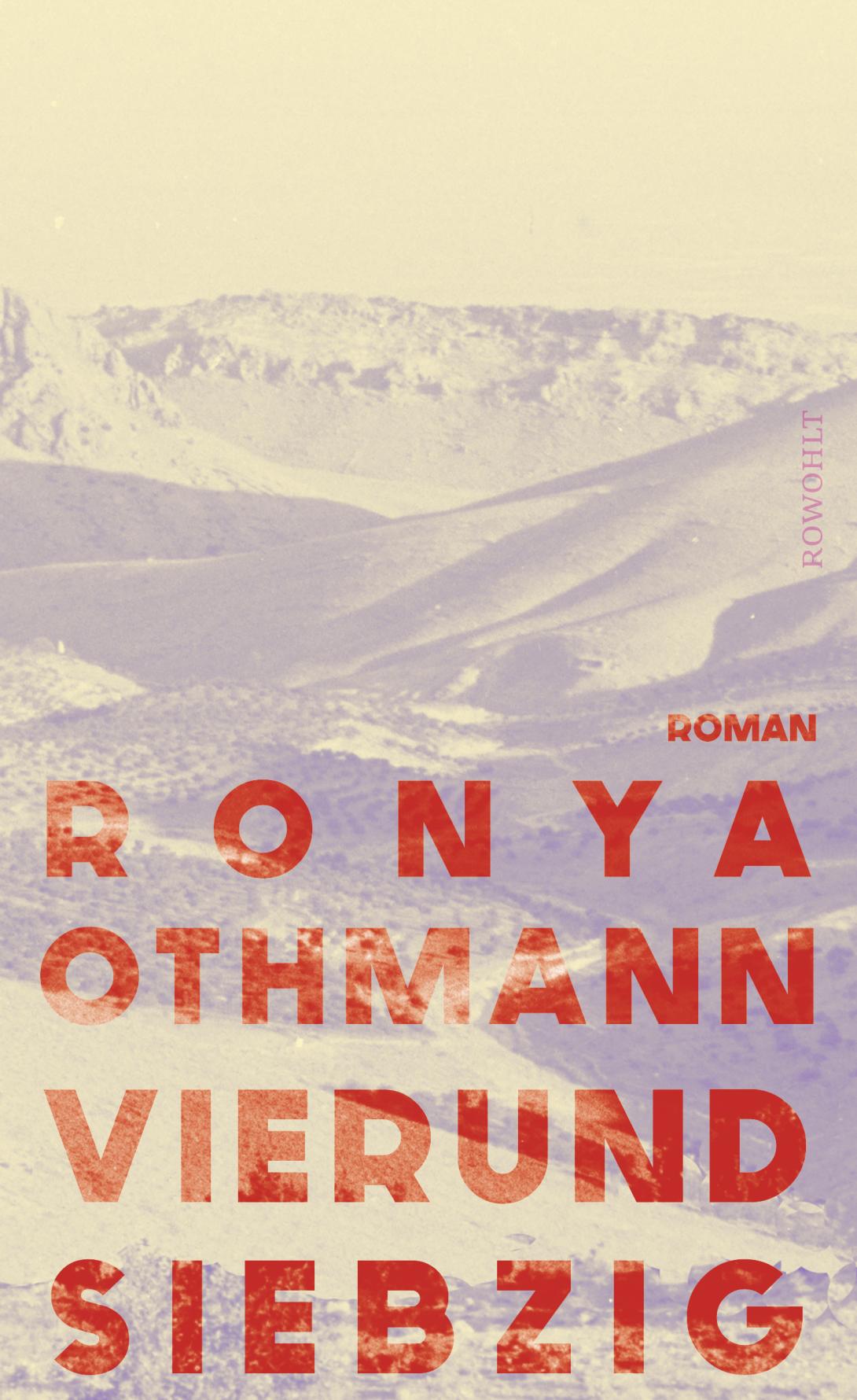Language can also be a weapon

 Rowohlt
RowohltRonya Othmann | Vierundsiebzig | Rowohlt | 512 pages | 26 EUR
What is man? What is he capable of? And - the unanswerable question that always weighs heavily - why? On August 3, 2014, the Islamic State began a year-long genocide against the Yazidis in Syria and Iraq: mass shootings, rapes, slavery and unspeakable brutality. This affected Ronya Othmann more deeply than those of us who followed the events in the news, if at all. She is the daughter of an atheist Yazidi (a contradiction in terms) and a German mother. Although her immediate family managed to escape the onslaught, she knows some of the victims personally, from images or through hearsay from family. And in order to somehow finally come to terms with her own experience, she has to face the unspeakable and the unimaginable. She wants to do this, she has to do it, and, most importantly for the rest of us, she can do it.
Ronya Othmann has come a long way. In 2020, she published her first novel, "The Summer", which focuses on her summer visits to her grandparents in Syria. She describes a harsh yet also warm and beautiful world under the yoke of the Assad family's dictatorship and the rejection as infidels by the Muslim majority society. It is a village life that, for the children, always had a great sense of freedom, something impossible in the city. In her novel, she captures a world since destroyed forever by the Islamic State. Reading "The Summer" is not easy - hovering over everything is the knowledge that years later a genocide will take place, the 74th suffered by the Yazidi religious community in its thousand-year history.
Hence the title of this book, "Seventy-four." Even the title, implying a possible continuation of the same in an as-yet unknown future, conveys a brutality that readers do not want to face.
Ronya Othman | The Summer | Hanser | 288 pages | 22 EUR
Ronya Othmann succeeds in making her book readable. She does this primarily by describing seemingly trivial matters, the everyday. She sets out in search of the facts; her first journey. Her second is to the sites of the atrocities. In this respect, the book is a two-pronged travel novel. But is it really a novel? The text reads more like a documentary, but this is too short-sighted an interpretation. Labelling it a novel is in this case also a cover. Ronya Othmann cannot simply travel independently around Syria and Iraq and answer the question "What are you doing here?" by saying "documenting the genocide of the Yazidis". She can however reply "I'm collecting material for a novel". Nothing political. A precaution, a survival reflex.
The highlight of her story is the journey to the Shingal Mountains (there is also a town of the same name). Many Yazidis were able to hide in these mountains, escaping the Islamic State, and the Kurds successfully defended this last refuge. As you read, you not only learn about many individual fates, but also about the state of affairs in Syria, Iraq and the almost independent Iraqi Kurdish region. You read "We are not living, we have simply not been killed." Also "I tell myself I have to finish this text. Once its finished, I can forget it all. I'll also note - this text has no end". You read "Words cannot express what I'm seeing." And "Overnight everyone became IS. And then overnight they were all civilians again." As a German, you have a better understanding of this than members of other nations ; once, overnight, Germans were (almost) all Nazis. But after their defeat in the Second World War, they woke up as democrats and pretended they had always been so. What do you believe?
Once again, as always, it was our neighbours who betrayed us. Those same neighbours with whom we had lived peacefully for decades, with whom we drank tea and occasionally shared a meal. The foreign fighters of the Islamic State neither knew what a Yazidi was nor what he looked like. It was the neighbours who betrayed us.
The book is not a light read, not something with which to while away the hours. Cruel images suddenly emerge from its depths. A trial in the Munich district court, in a building where I once experienced a court hearing myself. A woman is being sentenced. She had let a five-year-old girl die of thirst in the sun. The German media reported extensively on both the proceedings and the verdict.
Alexandru Bulucz | Galante Lügen | In the Ronya Othmann case
Suddenly, turning a page, there is a list of names, men who have been killed. Thirty, perhaps forty people. The butchers of the Islamic State have always immediately singled out the men and boys and shot them. I have to make an effort to resist the temptation to gloss over their names. I don't want to let their fate get to me. I go back to that section and glance through the names, though not with the thoroughness that I should. This is self-protection.
Ronya Othmann doesn't present the reader with a finished picture because she doesn't have one herself. She says at one point that there is no story, no common thread. She provides the pieces of a puzzle, but how she herself fits them together, remains her closely guarded secret. It is the same for the reader: they have to put the pieces of the puzzle together themselves. What they learn about the genocide of the Yazidis, about the author and about themselves, they will also keep to themselves. This book is not one to be discussed over cocktails.
The name Ronya means light, sunlight, ray of sunshine. Ronya Othmann shines a bright light, as sharp as a laser, on something that we would rather forget. I finished the book on the very day when, 30 years ago, the massacre of millions of Tutsi began in Rwanda. And I asked myself whether, come August, the media would report that the genocide of the Yazidis had begun ten years earlier. This is what matters - the memory. This is what is so unbearable - the memory. Let's hope that "Seventy-four" is translated into many languages!



